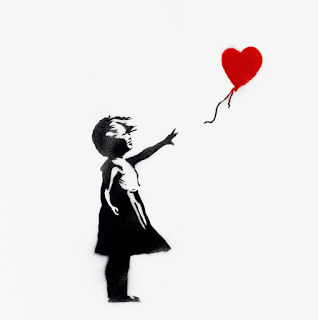If there’s
one thing they don’t cover in medical school but that every doctor learns it’s
navigating your own mental health.
Obviously,
they teach you about how to recognize it and manage it in your patients, they
teach you about biopsychosocial models, they teach you how to ask questions
indirectly and how to check if someone is a danger to themselves. What they don’t
teach you is how to be ok with not being ok yourself. They don’t teach you how
to protect yourself. I remember a lecture in 5th year about how to
look after my finances but I never remember a lecture about how to look after
my heart and mind. No one gives you the coping skills about dealing with human
destruction and death that is inevitably part of the career. I think they
thought we would get desensitized to it. Starting in second year standing over
a cadaver with a scalpel and ending with being called to certify death in the
ward at 2am in your internship years.
I realize
that my medical training occurred in a grey zone where my teachers had been
born in the years following a world war, a great depression and a giant
holocaust. They were perhaps more sensitized to suffering than we were as a
generation. They were also part of an era where mental health was stigmatized.
People were trying to conquer visible disease like polio, syphilis and HIV. If
you were struggling as a medical professional, you certainly didn’t talk about
it. You just didn’t become the best you could be. Instead of being a gregarious surgeon you resigned to an everyday reliable GP practice. You didn’t push yourself harder
you accepted who you were and made life livable. Or you didn’t. You suffered
and probably caused immense suffering in your wake. In your patients, in your
family, in your colleagues and trainees, in yourself. We didn’t have mentors in
this area. People taught us how to suture, put up drips and defibrillate but
they could never teach us how to deal with our hearts.
Now, as
a new generation of teachers, we find ourselves lost in a sea of uncertainty.
We, long before an invisible monster started running rampant across borders and
fences, were floundering under an epidemic of sadness and anxiety in the
profession. Sadness at at the inequality in our health care systems, the poverty
and suffering that lives beyond the borders of suburbia, out past the airport
and even further, deeper into the smaller pockets of our country. We have been
overwhelmed by the volume of need for healthcare, nutrition, education and employment
in our society. We have been struggling to stretch resources, apply equal
rights in a deeply unequal system and do this all with posts unfilled and
budgets cut.
We were
anxious before all of this started. We were reading articles and listening at
academic meetings about being resilient. We were rolling our eyes as they told
us to sleep more, socialize more, eat healthier when we knew that no 24-hour
shift one or two times a week, two sometimes three weekends a month at work, would
ever encourage those behaviours. We watched helplessly as the economy slipped
and the patient numbers increased but the capacity to employ more staff never
came. We watched as our colleagues melted in front of us or hardened to stone.
We watched some walk away broken. We buried some who simply couldn’t identify
with life outside of work anymore. In all of this, those of us, not necessarily
stronger but maybe more stubborn or persistent, have mentored ourselves through
our mental health crises. Some crises have been short moments, some have been
catastrophic. Some people have managed it on their own, some have done it with
trained professionals, drugs and therapy. We haven risen, or at the very least
stayed standing, taking one step forward at a time. Though we have not felt it
we have been resilient even if we are not sleeping enough, talking enough or exercising
enough.
Then out
of the east a terrible wind began to blow. It carried with it an invisible
uncertainty, something with the capacity to escalate the sadness
logarithmically. The wind grew stronger and stretched its fingers further west,
carrying microscopic particles of fear and panic in a steady swell. It has
stopped countries, economies, governments and freedom. It has taken from
mankind the one thing that is our strongest weapon – community. This virus that
wears a crown has for now defeated us.
Yet, as
low as we sink under the weight of what is around us – somehow, we must teach
ourselves again to rise, to be tougher, stronger. We must keep standing. One foot
forward at a time. We must carry each other. Carry our patients. Carry our
nurses. It’s true – we have no mentors again, but we are shaping ourselves
still to be mentors to the next generation.



